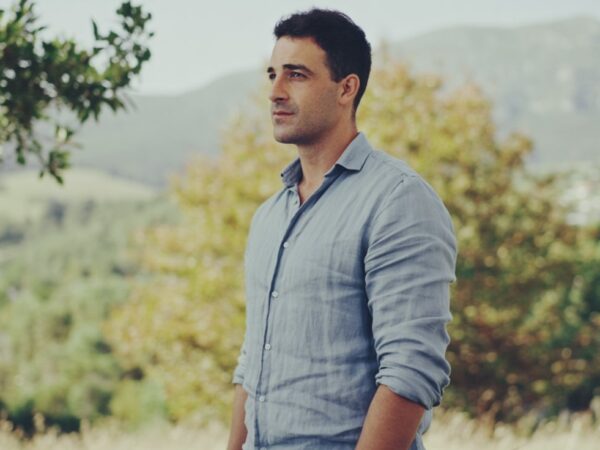Love What You Have, Before Life Teaches You to Lov – Tymoff

In a world driven by the relentless pursuit of more—more success, more possessions, more status—it’s easy to lose sight of the simple joys that already surround us. The quote by Tymoff, “Love what you have, before life teaches you to lov,” is a poignant reminder of the importance of appreciating the present before it slips away. This sentiment resonates deeply in today’s fast-paced society, where the desire for what’s next often overshadows contentment. In this article, we’ll delve into the philosophy behind this quote, explore the benefits of gratitude, and discuss how living in the moment can lead to a more fulfilling life.
Understanding the Quote
Philosophical Background
Tymoff’s philosophy, as encapsulated in this quote, revolves around gratitude and mindfulness. Gratitude is recognizing and appreciating the good in our lives, no matter how small. It shifts our focus from what we lack to what we have, fostering a sense of contentment and joy. On the other hand, mindfulness involves being fully present in the moment, acknowledging and embracing our current experiences without being distracted by the past or future.
This quote urges us to cultivate gratitude and mindfulness proactively rather than waiting for life’s challenges to force us into it. Life teaches harsh lessons—often through loss or adversity—about the value of what we previously took for granted. By adopting Tymoff’s philosophy, we can avoid the pain of these lessons by cherishing what we have in the here and now.
The Illusion of More
In modern society, the illusion of “more” is pervasive. We’re constantly bombarded with messages that suggest our happiness is tied to acquiring more possessions, achievements, or experiences—consumerism, social media, and relentless comparison fuel this mindset. We’re led to believe that contentment is just one more purchase or accomplishment away.
However, this pursuit of more often leads to a cycle of dissatisfaction. Known as the “hedonic treadmill,” this phenomenon describes how the satisfaction we experience is fleeting after achieving something we desire. Soon, we find ourselves yearning for the next thing, and the cycle repeats. Tymoff’s quote challenges us to step off this treadmill and focus on appreciating what we already have, which can ultimately lead to greater satisfaction and peace.
The Power of Gratitude
Mental and Emotional Benefits
Gratitude is more than just a feel-good concept; it significantly benefits mental and emotional health. Research in positive psychology has shown that practicing gratitude can improve mental well-being, increase happiness, and a stronger sense of life satisfaction. When we regularly acknowledge the positives in our lives, we shift our mindset from scarcity to abundance.
Gratitude also plays a crucial role in building and maintaining relationships. By expressing thanks and appreciation to those around us, we strengthen our connections and foster a more supportive and loving environment. Moreover, gratitude can enhance resilience, helping us cope better with life’s challenges by focusing on the good that still exists even in difficult times.
Practical Applications
Incorporating gratitude into our daily lives doesn’t require grand gestures; small, consistent practices can profoundly impact us. One effective method is gratitude journaling, where you take a few minutes each day to write down things you’re thankful for. This simple exercise trains your mind to focus on the positives, which can gradually rewire your brain to notice and appreciate more of life’s blessings.
Another practical approach is mindfulness meditation, which encourages you to be present and fully engage with your current experiences. By paying attention to the present moment without judgment, you can cultivate a deeper appreciation for the small joys that often go unnoticed in the rush of daily life.
Living in the Present
Mindfulness Practices
Mindfulness is a powerful tool in learning to love what we have. It involves slowing down and fully experiencing each moment, whether it’s the warmth of the sun on your face, the taste of your morning coffee, or the sound of laughter from a loved one. These moments might seem mundane, but when we genuinely savor them, we discover the richness of life that often gets overlooked.
Mindfulness can be practiced in many forms, from formal meditation to paying more attention during everyday activities. For example, mindful eating involves savoring each bite of food and noticing its texture, flavor, and aroma. Mindful walking encourages you to feel each step, notice your surroundings, and appreciate the act of moving. These practices help you stay grounded in the present and foster a deeper appreciation for the simple pleasures in life.
Overcoming the Hedonic Treadmill
The hedonic treadmill is the endless cycle of pursuing more, only to find that our satisfaction is short-lived once we achieve what we desire. We quickly adapt to new circumstances and start craving something else. This cycle can lead to chronic dissatisfaction and a sense that happiness is always out of reach.
To counteract this, we must consciously appreciate what we already have. This doesn’t mean abandoning ambition or the desire for growth; it’s about balancing the pursuit of new goals with a deep appreciation for the present. By practicing mindfulness and gratitude, we can leave the hedonic treadmill and find contentment in the here and now.
Relationships and Human Connections
Valuing Relationships
One of the most profound applications of Tymoff’s philosophy is in our relationships. It’s easy to take the people in our lives for granted, assuming they’ll always be there. However, life is unpredictable, and relationships can change or end unexpectedly. The quote reminds us to express love and appreciation for our loved ones while we still can rather than waiting until it’s too late.
Strengthening relationships involves small, daily gestures of appreciation—saying thank you, offering a kind word, or spending quality time together. These actions, though simple, can deepen our connections and create lasting bonds. By valuing our relationships now, we can avoid the regret of not fully appreciating them while we have the chance.
Strengthening Bonds
Being present in our interactions is essential to strengthen our bonds with others. This means putting away distractions, such as phones or work, and giving our full attention to the people we’re with. Listening actively, showing empathy, and expressing gratitude are all ways to cultivate more muscular, meaningful relationships.
Additionally, it’s helpful to remember that relationships require effort and intentionality. Just as we tend to a garden to help it grow, we must nurture our relationships to keep it healthy and thriving. By investing time and energy into our connections with others, we create a supportive network that enriches our lives in countless ways.
Finding Joy in Simplicity
Simplicity as a Source of Joy
Often, the greatest joys in life come from the simplest things—a home-cooked meal, a walk in the park, a conversation with a friend. However, we sometimes overlook these small pleasures in our pursuit of bigger and better experiences. Tymoff’s philosophy encourages us to find joy in simplicity and appreciate the abundance in our lives.
By simplifying our lives—decluttering our homes, reducing our commitments, and focusing on what truly matters—we can create more space for joy. When we strip away the excess, we’re left with the essentials: the people we love, the experiences that bring us happiness, and the moments that make life meaningful.
Practical Steps
To embrace simplicity, start by identifying what’s truly important to you. What brings you the most joy and fulfillment? What activities, possessions, or relationships add value to your life? Once you’ve identified these, focus on nurturing them and let go of the rest.
Decluttering your physical space is a great way to begin simplifying. As you clear out unnecessary items, you’ll find that you have more room—both physically and mentally—for the things that matter most. Similarly, simplifying your schedule by prioritizing activities that align with your values can help you find more time for what truly brings you joy.
The Role of Adversity in Teaching Appreciation
Learning Through Loss
Adversity is an influential teacher. When we experience loss—whether it’s the loss of a loved one, a job, or our health—we often gain a newfound appreciation for what we once had. Tymoff’s quote reminds us that learning this lesson is possible before hardship forces it upon us. By appreciating what we have now, we can avoid the pain of regret later.
The loss also has the potential to deepen our gratitude. When faced with the absence of something or someone we took for granted, we’re reminded of their value. This realization can inspire us to cherish what remains, fostering a greater appreciation for the present moment.
Preventive Mindset
To adopt a preventive mindset, regularly reflecting on the good things in our lives is essential. This can be done through gratitude journaling, meditation, or simply taking a few moments each day to acknowledge what you’re thankful for. By making gratitude a daily habit, you train your mind to focus on the positives, which can help you maintain a sense of appreciation even during difficult times.
Practicing mindfulness is also helpful. It keeps you grounded in the present and helps you fully experience and appreciate each moment. When you’re mindful, you’re less likely to take things for granted because you’re fully aware of and engaged with what’s happening around you.
Conclusion
In a world that constantly pushes us to want more, Tymoff’s philosophy of “love what you have before life teaches you to love” offers a much-needed reminder to slow down and appreciate the present. By practicing gratitude, mindfulness, and simplicity, we can find joy and fulfillment in the here and now rather than waiting for life’s inevitable lessons to teach us the hard way. As we navigate the complexities of modern life, let us remember the power of loving what we have. This approach shields us from future regrets and enriches our current life experience. By actively choosing to love what we have, we engage in preventive emotional care, protecting ourselves from the sorrow of realizing the value of what we’ve lost too late.
Incorporating this mindset into our daily lives requires conscious effort and practice. It means regularly pausing to reflect on our blessings, expressing gratitude for the people and things we cherish, and resisting the urge to seek more constantly. It’s about finding contentment in simplicity, valuing relationships, and appreciating the beauty in the mundane. As we internalize these practices, we transform Tymoff’s wisdom from a mere thought into a way of life that leads to more profound satisfaction, stronger connections, and a more meaningful existence. In doing so, we enrich our lives and create a ripple effect that can positively impact those around us, fostering a culture of gratitude and appreciation that can improve the world.







